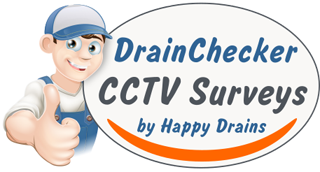Blocked drains and overflowing toilets are every homeowner’s worst nightmare. The good news is, most drainage emergencies can be easily prevented by following a few simple precautions. In the spirit of safety guidelines like the Firework Code that we all learned in school, we’ve created this playful but practical “Drainage Code.” Follow these 10 essential tips to keep your plumbing flowing smoothly and avoid costly disasters.
The Drainage Code
1. Know your drain’s capacity
Avoid overloading your drains with materials they can’t handle. Items like grease, food waste, and wet wipes may seem harmless, but they can quickly cause blockages. Stick to what your drains are designed for.
2. Use strainers in sinks and showers
Install strainers in your sinks and showers to catch hair, food particles, and debris. These inexpensive tools can prevent blockages from forming and keep your water flowing smoothly.
3. Avoid flushing the unflushable
Your toilet is designed to handle toilet paper and human waste—nothing more. Wet wipes, cotton pads, and sanitary products don’t break down in water and will eventually clog your pipes. Dispose of these items in the bin instead.
4. Don’t ignore slow drainage
If water starts draining slowly, it’s a red flag that something is blocking your pipes. Act fast by using a drain snake or drain-safe cleaner to remove the blockage before it becomes a full-blown emergency.
5. Keep your drains clean
Regular maintenance is key. Flush your drains monthly with hot water or a mixture of vinegar and baking soda to clear out any buildup. This simple step can prevent major issues down the line.
6. Mind the grease!
Grease and fat solidify in pipes, leading to nasty blockages. Never pour them down the sink. Instead, let them cool and solidify, then scrape them into the bin.
7. Be mindful of what goes down the sink
Food scraps, coffee grounds, and fibrous materials like pasta or rice can easily clog your drains. Dispose of these items in the compost or bin instead of rinsing them down the sink.
8. Know where your drains are located
If you’re doing any landscaping or outdoor work, make sure you’re aware of where your main drain line is. Accidentally damaging your drain can cause expensive repairs and major disruptions.
9. Check outdoor drains regularly
During autumn and winter, leaves, dirt, and debris can clog outdoor drains. Regularly check and clean your gutters and outdoor drains to prevent flooding or water backup, especially before heavy rain.
10. Be prepared for emergencies
Even with all the precautions in the world, emergencies can happen. Keep tools like a plunger and a drain snake handy for minor blockages. For more serious issues, don’t hesitate to call a professional drainage service.
By following the Drainage Code, you can prevent most common plumbing problems and keep your home’s drainage system running smoothly. Simple steps like regular maintenance and being mindful of what goes down your drains can save you from major headaches (and expenses!) in the future. Prevention is always better than cure when it comes to drainage emergencies.
Remember Remember……
What ever your Drainage Emergency Happy Drains is here to help!
Call 0800 849 8099 and speak to our friendly, professional team.
Happ-Happ Happy November 5th!
Stay Safe David & Will


